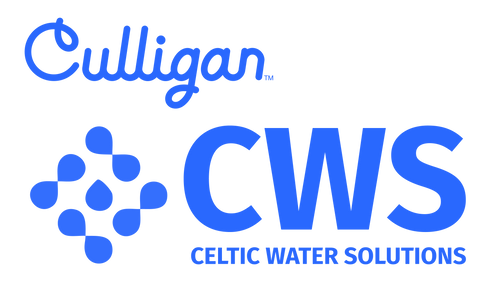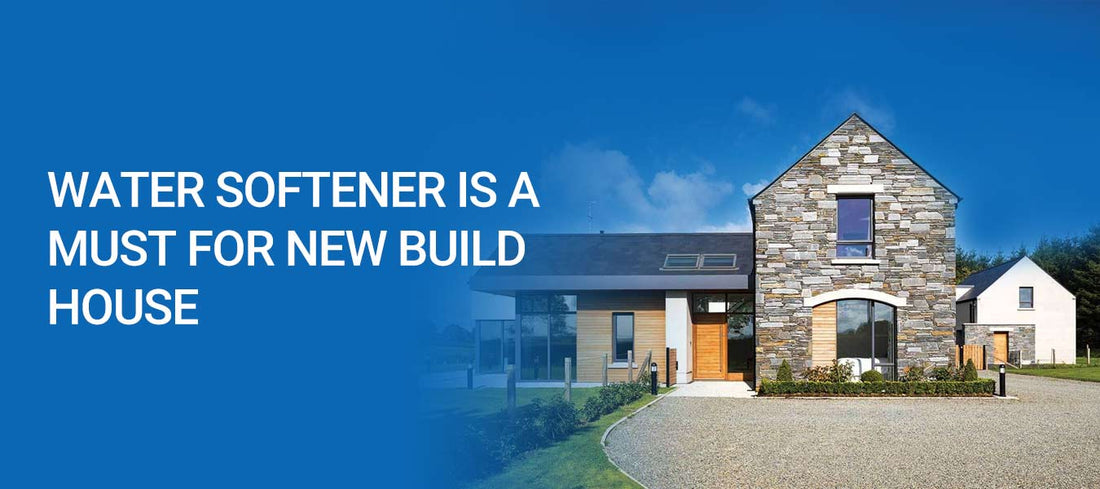Have you recently bought or are thinking of buying a new home? There is no better way to protect your home from the damaging effects of hard water than installing a CWS Clack Water Softener. One of the great feelings about moving into a new built house is how fresh and new everything looks! Ok, somebody might have been a bit clumsy when moving the sofa and there's a mark on the wall that needs to be removed - but this can be done nice and quickly with a lick of paint. Imagine if every day, somebody made a new mark on the wall that needed tidying up, it would be quite infuriating, right? Hard water will also leave its mark every day. Limescale will begin to build up inside your new water heating system reducing its efficiency which will mean more energy used to heat your water and therefore higher energy bills. Your home appliances will also come under attack from the minerals found within hard water and although they are new now, they will need replacing sooner than if you had a Water Softener installed.
How do I know if I need a water softener?
If your water is hard, you’ll usually notice. There will probably be whitish, yellowish, or greyish deposits on shower heads and taps, around drains, and sometimes even in toilet bowls. These deposits are called limescale and are usually deposits of calcium and magnesium. This scale build-up is a tell-tale sign of hard water. However, this isn’t the only place limescale builds up, and it can often be more problematic when it occurs in pipes and appliances. In addition to scaling around plumbing fixtures, hard water can cause:
- Soap scum on shower walls
- Dry skin and dry, dull hair
- Dried water spots on dishes
- Less lathering and fewer suds with soaps, detergents, and shampoos
- Rough, stiff and sometimes dull or dingy-looking laundry
For households on mains water supply, you can easily know water hardness levels in your area by using our free water hardness checker tool. If you are on a private well, it is recommended to test your water. Generally, private wells also have iron, manganese, sulphur, bacteria and other contaminants present in the water which would require a specialist treatment system to solve the problem.
How much will you save with a water softener?
As a new homeowner, you must have analysed and probably purchased appliances for your home with return on investment (ROI) in mind. Buying a Water Softener is no different. The cost of a water softener will quickly pay for itself – and quickly. CWS Clack Water Softeners are reliable systems with a lifespan of around 10-15 years, and they have the benefit of not only making your home more energy efficient but saving on bills in other ways. In general, by softening water in a house, CWS Clack Water Softeners can save an average family of four up to €600 per year:- €90 on cleaning products
- €260 on energy costs
- €150 on household appliance wear and tear and other maintenance costs
What are the other benefits of water softeners?
Alongside the cost savings, installing a water softener has several benefits:
- It eliminates limescale, which can otherwise be difficult to clean from bathrooms and kitchens and damage fixtures and fittings.
- No limescale will increase the lifespan of your appliances.
- Appliances will perform better due to improved efficiency.
- Softened water is gentle on skin & hair. Studies have linked hard water to worsen eczema and other skin conditions.
- Softened water lathers us easier with soaps, shampoos and laundry detergents, you won’t have to use as many products, which in turn is gentler on the skin and the environment.
- Protects pipes from limescale build-up.
Where should you install a water softener?
How much does a water softener cost?
The cost of a water softener will depend on the size of your home, how many people live in it and the average water consumption, as well as the quality and features of the system you choose. You can expect to pay anywhere between €600 to €1000, which varies for different retailers. A professional installation costs around €150- €200 depending on the complexity of the installation. While the initial cost may seem high, the long-term benefits of owning a water softener will hopefully mean you'll save on repair and cleaning costs. Many cheap water softening systems may seem like a bargain, but often these systems are built from inferior quality components and won’t last long. Water softeners are usually classified into 2 types based on the type of regeneration.
- Timed – Regenerates at a fixed time of day regardless of water consumption
- Metered or volumetric – Regenerates based on your water usage
Timed water softeners are less efficient compared to their meter counterparts and hence cheaper. On the other hand, metered water softeners use demand-initiated regeneration (DIR) technology which measures water consumption and starts the regeneration cycle only when necessary. This allows for higher efficiency, lower salt consumption and increased lifespan of the softening unit. CWS Clack Water Softeners are metered and only backwash when needed. A typical regeneration would last for 7-8 days (for a 4-person family) before it needs backwashing again. When pricing for a water softener, keep this useful tip in mind.
Can you drink softened water?
There’s confusion among homeowners if it’s safe to drink softened water. It’s the role of salt in the water-softening process that has created this confusion. It is critical to note that salt is only used to soften the resin that acts on the water – no salt gets into the water supply itself. In softened water, the sodium level increases. Sodium is not the same as salt (sodium chloride). In itself, sodium is not considered a risk. We all need a little bit of it in our diet because it’s critical to the overall function of our body. However, too much sodium drives up blood pressure which can lead to heart problems. Therefore, it is not recommended for individuals on a prescribed low-sodium diet and babies. That is why we usually add a drinking water filter to remove excessive sodium which was added during the softening process. We discuss this topic in more detail in a separate blog. Read more: Is it safe to drink softened water?
Improve Water Quality in Your New Build
Buying a new home or self-building one can be expensive, especially in recent times. If you live in a hard water area, installing a water softener is a lifeline to dealing with the effects of limescale build-up. Protect your home & keep it in a top-notch condition by improving your water quality. Get a CWS Clack Water Softener installed and you’ll keep enjoying the benefits for years to come. If you have recently bought a new house, talk to our team and learn how our water softener can help you keep your lovely new home looking like, well, NEW!!

